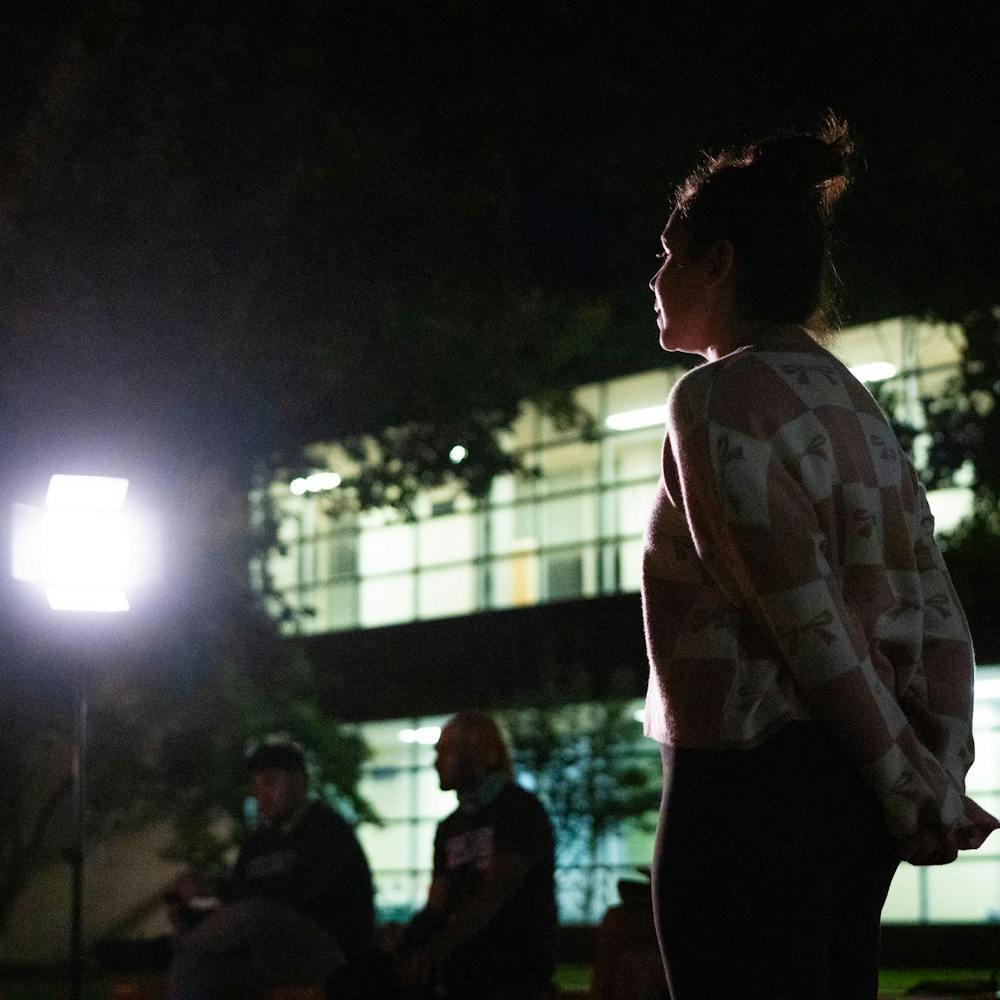There can be too much of a good thing — even puppies.
Every year, more than 100,000 kittens and puppies are euthanized in Michigan shelters because of overcrowding and limits on how long an animal can stay. To help limit the number of animals without homes, the MSU College of Veterinary Medicine is going to the source of the problem — the dogs and cats who have the litters.
Professors and student volunteers from the College of Veterinary Medicine are on tour across Michigan for their annual, three-week Neuter-a-Thon.
The Neuter-a-Thon began in response to the large number of people who could not afford to spay or neuter their pets, said Francesca Letasse, an alumna from the MSU College of Veterinary Medicine who has volunteered on the trip for four years. The event targets five cities in Michigan with a large low income demographic and offers discounted neutering services.
Within each city, MSU works with various animal shelters that find pets to be neutered and ensure the animal’s family has a low income. The shelters also provides food and shelter for the MSU volunteers on the trip.
All About Animals Rescue, an animal group that has worked with MSU throughout the last five years in Waterford, Mich., offers the neutering surgery for $20, a fraction of the cost of a normal neutering or spading, which can cost anywhere from $80 to $120, Letasse said.
The neuterings are beneficial to the animal’s health, she said.
“Female dogs are less likely to get breast cancer and (neutering has) other health benefit and behavior benefits, too,” Letasse said. “Dogs are less aggressive when neutered, and females don’t go through heat. It’s more sanitary and a more clean pet to have.”
MSU has been doing Neuter-a-Thons since 1999. The 24 students on the trip do about 100 neuterings or spayings a day.
Amber Sitko, president of All About Animals Rescue, said the animals experience minimal pain during surgeries, and the advantages of getting the surgery can go beyond the animal’s health.
“The animal is very comfortable during surgery and after surgery,” Sitko said. “(Neutered pets are) less likely to get out of the yard, get hit by cars, bite people and less likely to end up in the shelter. It really could save their life as well as all the lives of kittens and puppies we have to keep euthanizing.”
Pets also can receive a shot, a combination of four or five vaccines to keep them healthy. The shot includes a vaccine for the parvo virus, which is fatal in dogs, as well as a vaccine for rabies.
MSU helps fund part of the vaccines through grants and smaller Neuter-a-Thons held at MSU throughout the year.
Social relations and policy senior Mitch Goldsmith, president of MSU’s Students Promoting Animal Rights, said getting house pets neutered is the responsibility of every owner.
“Along with all animal rights groups I have ever come in contact with, I think spaying and neutering is a must for anyone who has a companion animal,” Goldsmith said. “It’s the responsible thing to do. … It literally saves lives.”
Support student media!
Please consider donating to The State News and help fund the future of journalism.
Discussion
Share and discuss “MSU veterinarians embark on 3-week Neuter-a-Thon” on social media.






